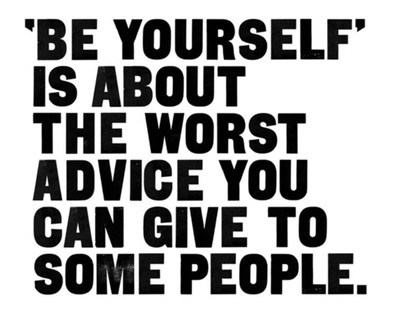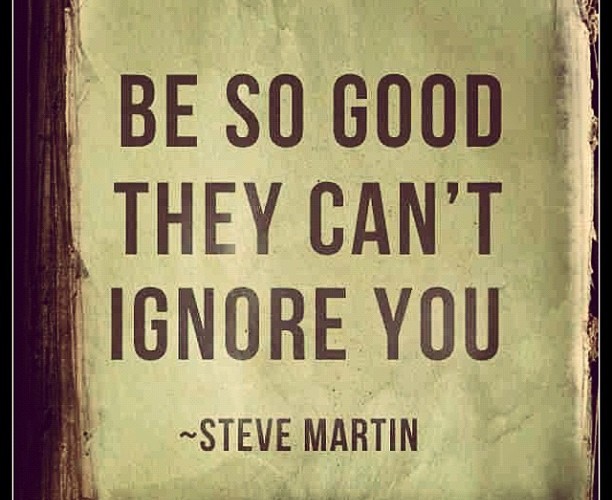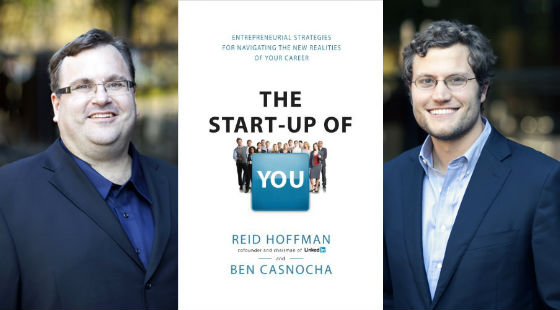10 tips to increase your productivity:
d you know double tapping the space bar on your smartphone will automatically enter a period and add a space to make ending a sentence easy? I didn't. In this TED Talk, David Pogue gives 10 quick technology tips that will increase your productivity. Frankly, I was embarrassed that I didn't know many of these. Pogue is a technology columnist for the New York Times and author of more than 60 books. Join 25K+ readers. Get a free weekly update via…
1 min read
Six quick and easy ways to boost your creativity:
e WSJ has a piece that discusses six research-backed ways to provoke an "AHA!" moment. I'll link out to more information on each. What do most of the techniques share in common? Stepping back from the problem in one way or another. I've posted before about how distance helps creativity. 1) Do Routine Tasks "Walking away from a problem to do simple, routine tasks, and letting the mind wander in the process, can spark creative new connections or approaches…
2 minutes
4 things that will make you more motivated, happy and creative at work:
rvard's Teresa Amabile gave office workers something very simple: diaries. Then she reviewed their ups and downs and drew connections. What she learned was extraordinary. She described the study in her book The Progress Principle: Using Small Wins to Ignite Joy, Engagement, and Creativity at Work. Here are four of the biggest things she learned: 1) Progress Motivates You More Than Anything Else Nothing is more motivating than progress in meaningful work and nothing more taxing than setbacks. Via The Progress Principle: Using…
5 minutes
9 Expert Insights That Will Make You Productive, Successful And Smart
pert Tip #1: How To Be More Creative Your first idea is rarely the best. Always keep pushing and generate more possibilities. Advice from Andrew Goldberg, writer on Family Guy: I’m a big fan of writing "alts" (versions). If I come to a joke spot, even if I’m working on my own stuff, I’ll often write three or four or five different alts, and then I’ll show it to friends, show it to my wife, show it to my manager, show…
7 minutes
Cal Newport on how you can be an expert and why you should *not* follow your passion
bsp; Cal Newport holds a PhD from MIT and is an assistant professor of Computer Science at Georgetown University. He runs the popular blog Study Hacks (which I highly recommend) and is the author of four books including, most recently, So Good They Can't Ignore You: Why Skills Trump Passion in the Quest for Work You Love. Cal and I talked about the secrets to becoming an expert, how deliberate practice works and why following your passion can be a *bad* idea.…
5 minutes
Interview – NYT/WSJ Bestselling Author Ben Casnocha teaches you the new secrets to networking and career success
bsp; My friend Ben Casnocha is the co-author of the NYT/WSJ #1 bestseller The Start-up of You: Adapt to the Future, Invest in Yourself, and Transform Your Career. He wrote the book with LinkedIn founder Reid Hoffman and it explores mindsets and techniques for navigating the rapidly changing world of work. (Full disclosure: I'm referenced in the book as a case study.) Ben and I spoke about how your career can benefit from Silicon Valley strategies, what most people get wrong…
6 minutes
What makes us feel good about our work?
n Ariely teaches psychology and behavioral economics at Duke University and is the bestselling author of Predictably Irrational: The Hidden Forces That Shape Our Decisions and The Upside of Irrationality: The Unexpected Benefits of Defying Logic. Join over 275,000 readers. Get a free weekly update via email here. Related posts: How To Get People To Like You: 7 Ways From An FBI Behavior Expert New Neuroscience Reveals 4 Rituals That Will Make You Happy New Harvard Research Reveals A Fun Way To Be More…
1 min read
26 Top Time Management Hacks:
in 25K+ readers. Get a free weekly update via email here. Related posts: Checklist: Are you doing these five things to be more effective at work? 5 tips for being a better leader 5 top secrets to getting more done
1 min read






